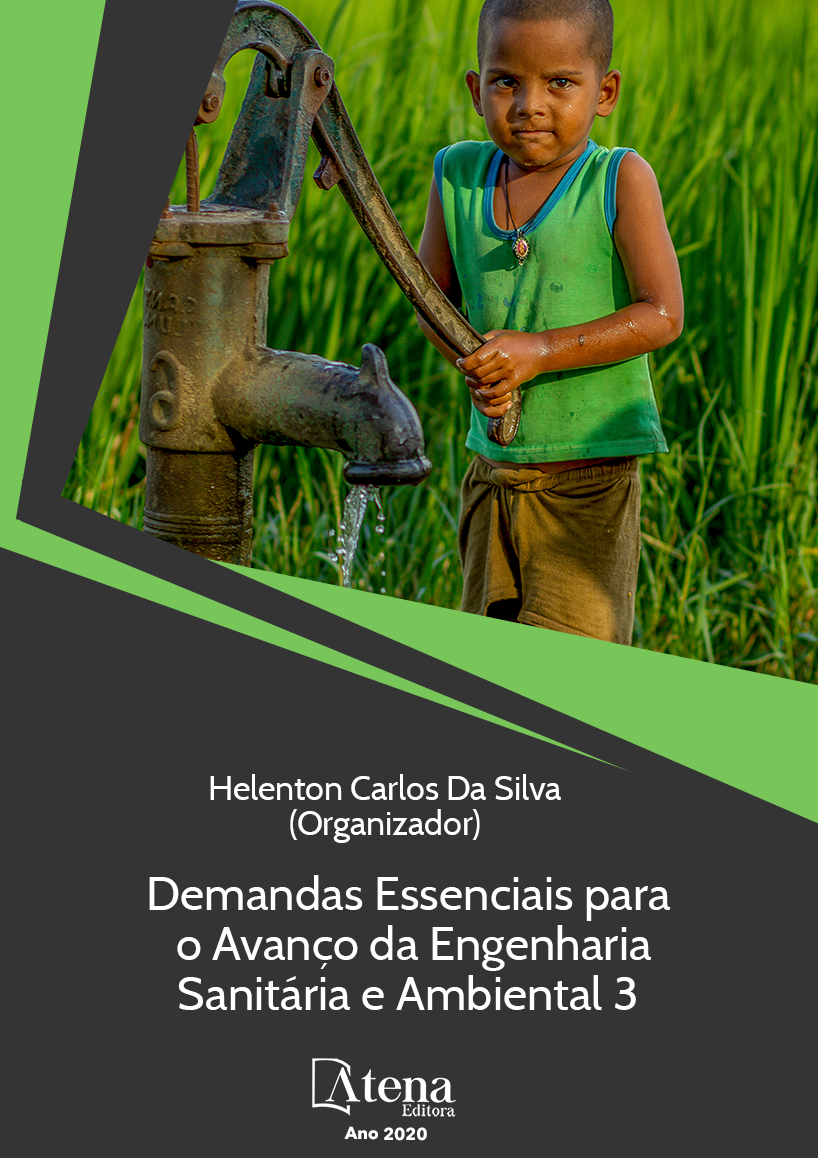
COMPOSTAGEM COMO FERREMENTA DE EDUCAÇÃO AMBIENTAL: UMA IMPLANTAÇÃO DO MÉTODO SOBRE UMA ESCOLA PÚBLICA EM MARABÁ-PA
No Brasil a grande geração de
resíduos sólidos (RS) e a sua destinação
inadequada é um grande problema. Em torno de
50% a 60% dos resíduos gerados constitui-se de
materiais orgânicos passíveis à compostagem.
Dentre as práticas relevantes para conservar
o solo em condições favoráveis ao exercício
de suas inúmeras funções, principalmente em
condições climáticas de semiaridez, está a
compostagem. A transformação dos materiais
orgânicos em produto de alto valor agregado,
podem ser utilizados nas escolas e assim
promover a interação ecológica por meio da.
O objetivo desse trabalho foi acompanhar
a implantação da compostagem da fração
orgânica dos RS em uma escola municipal sob
o municipio de Marabá (PA) e avaliar o índice
de educação ambiental frente aos educandos
e funcionários antes e depois da implantação
do projeto. Foi realizada uma visita na escola
a fim de apresentar o projeto, com aplicação de formulários semiestruturados e
palestras informais aos educandos com questões referentes à compostagem. Para
aplicar o conhecimento adquirido começou-se a parte prática com a implantação da
composteira doméstica iniciando o processo de compostagem seguido de aplicação
do composto gerado a uma pequena horta escolar. Feita a análise dos formulários,
observou que 63,5% dos educandos desconheciam sobre compostagem; 84,1%
desejam aprender e aplicar na escola; 98,5% dos educandos tem a percepção da
importância da EA na escola. Concluiu-se que a implantação da compostagem em
todas as etapas foi satisfatória, e gerou interesse por parte da escola em continuar o
projeto ora implantado.
COMPOSTAGEM COMO FERREMENTA DE EDUCAÇÃO AMBIENTAL: UMA IMPLANTAÇÃO DO MÉTODO SOBRE UMA ESCOLA PÚBLICA EM MARABÁ-PA
-
DOI: 10.22533/at.ed.48620210120
-
Palavras-chave: Resíduos orgânicos, Horta escolar, Composteira
-
Keywords: Organic waste, School garden, compost bin
-
Abstract:
In Brazil, the large generation of solid waste (RS) and its improper
disposal is a major problem. Around 50% to 60% of the generated waste is made up
of organic materials that can be composted. Among the relevant practices to conserve
the soil in conditions favorable to the exercise of its numerous functions, especially
in climatic conditions of semi-aridity, is composting. The transformation of organic
materials into high added value products can be used in schools and thus promote
ecological interaction through composting. The objective of this work was to monitor the
implementation of composting of the organic fraction of RS in a municipal school under
the municipality of Marabá (PA) and evaluate the environmental education index in
front of the students and employees before and after the implementation of the project.
A visit was made to the school in order to present the project, with the application
of semi-structured forms and informal lectures to the students with issues related to
composting. In order to apply the acquired knowledge, the practical part was started
with the implementation of the home compost plant, starting the composting process
followed by the application of the compost generated to a small school garden. After
analyzing the questionnaires, he observed that 63.5% of the students did not know
about composting, 84.1% wanted to learn and apply at school, 98.5% of the students
had the perception of the importance of environmental education at school. It was
concluded that the implementation of composting in all stages was satisfactory, and
generated interest on the part of the school to continue the project now implemented.
-
Número de páginas: 13
- Hyago Elias Nascimento Souza
- Mateus do Carmo Rocha
- Mayara Aires do Espirito Santo
- Ana Paula Santana Pereira
- Carlos José Capela Bispo
- Suziane Nascimento Santos
- Antônio Pereira Júnior
- Jeferson Martins Leite
- Vinicius Salvador Soares
- Aline Souza Sardinha


